Dealing with raccoon infestations can be challenging for homeowners. When these intelligent creatures invade your property, they can cause significant damage, create unsanitary conditions, and disturb your peace. This comprehensive guide explores legal raccoon control options, important safety considerations, and effective alternatives for responsible raccoon management.
Quick Picks: Best Raccoon Poison Alternatives
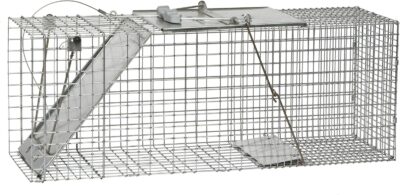
Editor’s Choice
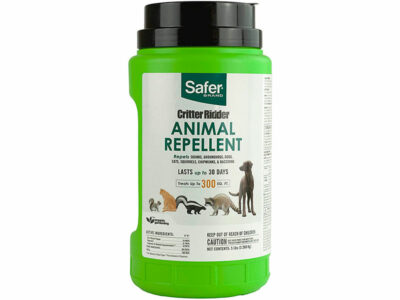
Best Deterrent
Why Raccoon Poison Is Not Recommended
Many property owners searching for raccoon control solutions may consider poison as an option. However, it’s crucial to understand several important facts about using poison for raccoon control:
There are currently no raccoon poisons approved or labeled specifically for raccoon control in the United States. Using any poison not explicitly labeled for raccoon control is illegal under federal law. Misusing rodenticides or other poisons to target raccoons violates wildlife protection laws and pesticide regulations.
Legal Consequences
Using pesticides in ways not specified on the label is a federal offense that can result in significant fines and even criminal charges.
Non-Target Risk
Any attempted poison would likely affect pets, beneficial wildlife, and potentially children, creating serious safety and environmental hazards.
Inhumane Treatment
Poisons typically cause prolonged suffering before death, raising ethical concerns about wildlife management practices.
Common Misconceptions About Raccoon Poison
There are several misconceptions about using poison for raccoon control that need to be addressed:
| Misconception | Reality |
|---|---|
| Rodent poisons can be used for raccoons | Using rodenticides for any animal not listed on the label is illegal and potentially dangerous |
| Antifreeze can be used as raccoon poison | Using antifreeze as poison is illegal, extremely inhumane, and creates high risk to pets and wildlife |
| DIY poison mixtures are effective | Homemade poisons are illegal, indiscriminate, and create serious environmental and safety hazards |
| Poisoning is a clean, easy solution | Poisoned animals often die in inaccessible places, creating odor problems and potential disease risks |
Wildlife management professionals and government agencies recommend using exclusion techniques, habitat modification, and humane trapping for raccoon control rather than any form of poison. These approaches are more effective, legal, and environmentally responsible.
Havahart Live Animal Trap
Editor's ChoiceHow Does It Work
How to Use
- Place the trap in areas with raccoon activity, such as near garbage bins or along known travel paths.
- Bait the trap with effective raccoon attractants like marshmallows, cat food, or fish.
- Check the trap frequently – at least twice daily.
- Once captured, contact local wildlife authorities for guidance on legal release locations.
- Humane solution that doesn't cause suffering
- Legal in most jurisdictions when properly used
- Reusable for multiple captures
- No risk to non-target animals or pets
- Requires proper handling of live animals
- May need permits for relocation in some areas
- More time-intensive than some other methods
Critter Ridder Animal Repellent
Best DeterrentHow Does It Work
How to Use
- Sprinkle the granules around garbage cans, gardens, deck perimeters, and other areas with raccoon activity.
- Reapply after heavy rain or every 30 days for continuous protection.
- For enhanced effectiveness, combine with other deterrent methods like motion-activated devices.
- Non-toxic and safe for use around plants and landscaping
- No harm to animals - simply deters them
- Rain-resistant formula provides lasting protection
- OMRI listed for organic gardening
- May require frequent reapplication
- Not 100% effective against all raccoons
- Should be used as part of a comprehensive approach
Legal and Effective Raccoon Control Methods
Instead of pursuing potentially harmful or illegal control methods, consider these effective and legal alternatives for raccoon management:
Professional Removal
- Licensed experts ensure legal compliance
- Humane removal techniques
- Identification of entry points
- Property restoration services
Live Trapping
- Humane capture and relocation
- Legal in most areas with permits
- Effective for removing individual animals
- Prevents suffering
Exclusion
- Seal entry points to structures
- Install chimney caps and vent covers
- Remove access points to roof
- Long-term preventative solution
Effective Raccoon Deterrents
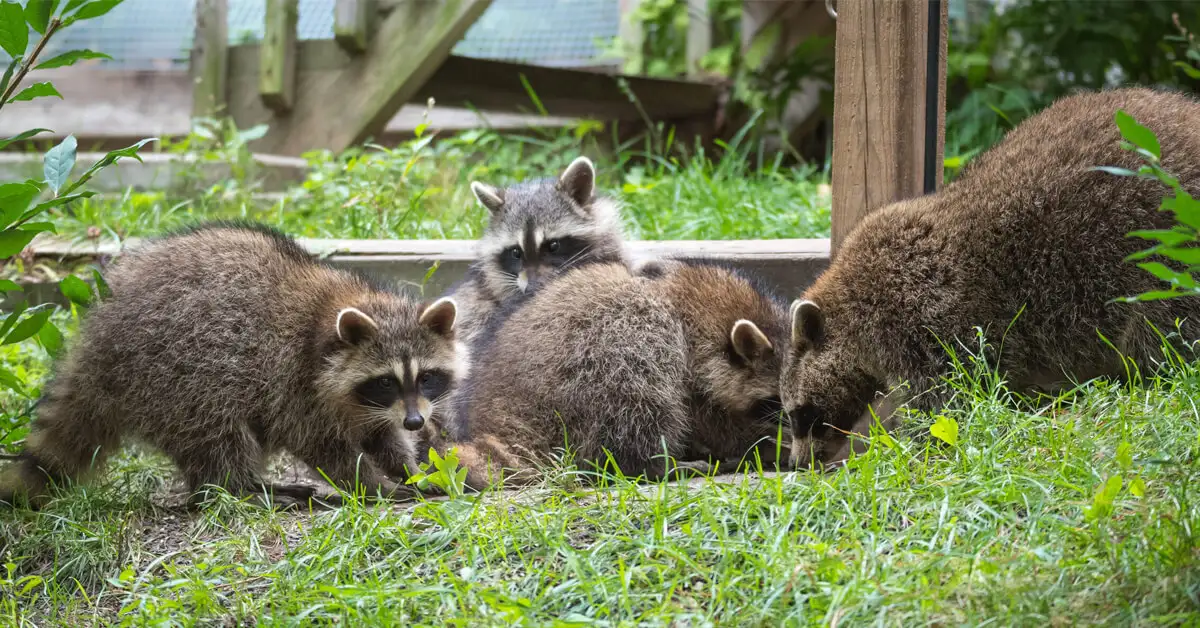
Prevention is often the most effective long-term solution for raccoon problems. Here are proven deterrents that can help keep raccoons away from your property: Implementing physical barriers, such as sealed trash cans and fencing, can be instrumental in excluding raccoons from your yard. Additionally, using natural repellents, like ammonia or cayenne pepper, creates an unpleasant environment for them. By understanding how to deter raccoons effectively, homeowners can minimize the chances of attracting these pests.
The most successful raccoon control strategies combine multiple methods, including habitat modification, exclusion techniques, and deterrents. This integrated approach addresses the root causes of raccoon problems rather than just treating symptoms.
Signs You Need Professional Raccoon Control
While DIY methods can be effective for minor raccoon issues, some situations call for professional intervention:
When to Call a Professional
- Raccoons have taken up residence in your attic, chimney, or crawl space
- You suspect there are raccoon babies (kits) present
- Raccoons are showing aggressive behavior
- You’ve found raccoon droppings, which can contain harmful parasites
- DIY deterrents and trapping have been unsuccessful
- There is significant property damage requiring repairs
Raccoons can carry diseases transmissible to humans, including rabies, leptospirosis, and raccoon roundworm. Professional wildlife control specialists have the training and equipment to safely handle raccoon problems while minimizing health risks.
Frequently Asked Questions
Are there any legal poisons for raccoon control?
No, there are currently no poisons approved specifically for raccoon control in the United States. Using any poison not explicitly labeled for raccoon control is illegal under federal law and violates wildlife protection regulations.
Wildlife management professionals recommend humane trapping, exclusion techniques, and habitat modification instead of poison.
What is the most effective way to get rid of raccoons?
The most effective and humane approach to raccoon control typically involves a combination of exclusion techniques, habitat modification, and sometimes live trapping by licensed professionals. Removing attractants like food sources, securing trash cans, and sealing entry points to structures are essential first steps.
For established infestations, professional wildlife removal services offer the most comprehensive and legally compliant solutions.
Is it illegal to trap and relocate raccoons?
Trapping and relocating raccoons may require permits in many jurisdictions. Some states prohibit relocating wildlife completely, while others allow it with restrictions. Always check with your local wildlife agency before attempting to trap and relocate raccoons.
If relocation is permitted, you typically must release the animal within a certain distance of the capture site and on property where you have permission.
How can I prevent raccoons from returning after removal?
To prevent raccoon reinfestation:
- Secure all potential entry points to your home with heavy-gauge hardware cloth or metal flashing
- Use secure, animal-proof trash containers
- Remove outdoor food sources, including pet food
- Trim tree branches that provide roof access
- Install chimney caps and roof vent covers
- Consider motion-activated deterrents like lights or sprinklers
Do raccoons carry diseases dangerous to humans?
Yes, raccoons can carry several diseases that pose risks to humans, including rabies, leptospirosis, and raccoon roundworm (Baylisascaris procyonis). The roundworm, in particular, can be transmitted through contact with raccoon feces and can cause serious neurological damage in humans.
This is one reason why professional handling of raccoon problems is strongly recommended, as experts have the proper equipment and training to deal with these health risks safely.
Conclusion: Responsible Raccoon Management
While dealing with raccoon problems can be frustrating, it’s important to approach control methods responsibly and legally. Although some homeowners may search for information about raccoon poison, it’s crucial to understand that there are no legal raccoon poisons approved for raccoon control, and attempting to poison raccoons creates serious risks to the environment, pets, and even humans.
The most effective long-term solution involves a comprehensive approach that includes:
- Removing attractants that draw raccoons to your property
- Securing potential entry points to prevent access
- Using legal deterrents to discourage raccoons
- Consulting with wildlife professionals for safe, humane removal when necessary
If you’re dealing with persistent raccoon problems, contact a licensed wildlife control professional in your area. They can provide customized solutions that comply with local regulations while effectively resolving your raccoon issues. Remember that raccoons are intelligent native wildlife that play an important role in their ecosystems, and ethical management practices benefit both humans and animals.
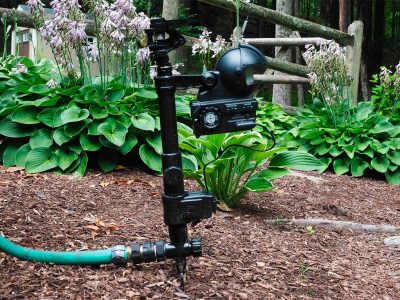
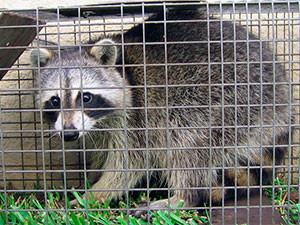
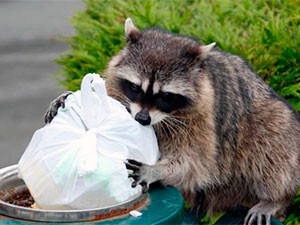

Screw inhuman methods Ill make sure to put out antifreeze and kill those fckers.
How inhumane is it when a raccoon tears apart your small pets and chickens you care deeply about? Raccoons are evil nasty animals!
Coons don’t belong in urban areas. They kill and are disease filth- kill them by saying means possible is the only way to go.
I bought a Hav-A-Heart trap caught 2 raccoons in it and within 20 minutes they chewed through the wire…piece of junk
Raccoons killed my cat, who was not aggressive and not near food. They kill maliciously. Live traps are the best solution, so you aren’t killing unintentionally. Then a pellet gun between the eyes, which is perfectly legal in most areas. They will kill your pets. 4 of the six that killed my cat are dead. 2 to go.
A pack of raccoons killed my poor little cat..there was no food near her, and they were all well fed..they killed her maliciously. She wasn’t aggressive at all..in fact she was running away and had almost escaped. I saw it on video. 4 of the six that killed her are now dead. 2 to go. Live trapping, to make sure you aren’t unintentionally killing anything else, is by far the best solution. Then a pellet to the brain will do the trick. It’s not illegal to shoot most pellet guns in town. Raccoons kill. They don’t belong in urban environments. They are basically very dangerous, large rats. Then feed them to the vultures. Or risk your pets to this deadly threat.
I usually just trap them, put them in 3 plastic trash bags & then throw it on the burn pile.
The plastic melts over them, restricting their running. The extreme heat does the rest.
I got sick of the coons all last year, so I baited them through this spring buried 50 pounds of Tannerite and put all kinds of free stuff and in the dead of night when they were just going town I blew those fuckers up.
The raccoons had taken up residency in my yard in early autumn and started digging large holes in my lawn at night for 2 weeks. They were so destructive and I wanted to brutalize them with an object but I decided that was too dangerous, so I got a peanut jar, filled it with antifreeze and put some nuts on the top and placed it where they were destroying my grass. Now there is no more damage to my lawn and I see no more evidence of those nasty creatures. I don’t care if it’s illegal or inhumane. They deserved to die for destroying my lawn and all of my hard labor and money invested in my lawn over the years. I’m so relieved they are dead and I can plant grass once again without their interference.
I totally agree with Hallie and Pauline, the fxxxkers needs to go somewhere else. I’ve been cleaned 3 xs by them I’ve shot like 4 already before but they keep on coming back in packs this last time they kill all my kids chickens my poor babies where looking for their chicken and they did a massacre in the coop, I am done been compassionate about them, ask I am writing this they were 4 of them outside of steps looking for food smh
A good raccoon is a dead one. I don’t give a damn if it is legal or not in my area. After the damage they did to my soffit, I am glad I beat them to death with a bat.
Im sorry but im about to get kicked out of my h.o.a all bc of these little rats. Soo. Any and all idea at this point is needed. We have tried everything even the head of committee. And bc my can lids can come off it is now my fault. They lock down and still those little brats can take them off, I dont care how they can leave this place. Ill get them out of here one way or another. And yes they do eat other animals. I found the neighbors poor kitten dead in my yard. All the more reason I want them gone. It didn’t do a thing to anyone. Stupid animals. I wasnt a fan before. Sure am not now.
I used to love raccoons, but no more. I have lost a lot of my chickens, ducks, geese, Turkey’s and guineas because of them. I will not trap them so they can kill someone else’s animals. We put them in pens off the ground in good pens and the jerks have gotten them. U have killed numerous raccoons, skunks, snakes and other predators. People told me they also eat baby kittens and puppies, I don’t want to hear about inhumane practice s of getting rid of them. I will do what it takes to keep them from using mine as a buffet meal.
Hallie is right on.
Absolutely!! We had 2 different females and babies in our homes. We trapped them and finally got them out and moved them to woods away from our home . YESTERDAY mid day after feeding my bantams that morning , Coons got in and killed every one of my bantams. I’m NOT playing nice anymore. I shot and killed ( 6) coons this morning that came back looking for leftovers. Across the road this evening there was 4 more huge raccoons and 2 small ones and 1 was in the yard. Ya’ll animal activist saying oh please just move them to a different woods I truly wish I could share with you a picture I took yesterday of the massacre of my bantam chickens that these RACCOONS did. Then see what you think. Because chickens provide food for humans raccoons spread diseases.
The only good coon is a dead coon.
I agree w/ Hallie!!
I want to kill them but am not wanting to harm neighbors cat
Hallie is 1,000% Right!!!
All you ‘humane animal activist’ need to stop all your fake empathy and sympathy for these evil and feral ‘trash pandas’ about ‘don’t kill the wildlife nonsense, not every animal is a source of food or nice to co-exist with.
Would you want a poisonous snake, aligátor, hyena in your backyard or property destroying and terrorizing both wildlife/people and propert …I think not!!!
If you got them in your attic,mix one container of cayenne pepper, a vile of capsaicin, and a bottle of ammonia in a chemical sprayer, set to stream, shoot into Windows, cracks,voids, etc. They will come flying out of there
thanks Dave. The little fockers have destroyed my soffits, facia, and eaves. THEY MUST GO!!!
Do not however go up in attic and spray this mixture you will poison yourself.
Can you spray this outside around the soffits and eaves to make it come out?
How would you poison yourself? It appears to be more of an irritant.
A shot gun works well if you can tree them. Otherwise poison if you live in a rural area.
The best way to stop raccoons is live trapping and release. The people saying that they starve to death or often die when relocated are badly mistaken. Not sure where they heard such nonsense, but please don’t believe it. One easy way to tell that they survive is to mark them with dye, then release them in the woods near a friends house. We have seen the same relocated raccoons and opossums for over a year! We have been trapping and relocating raccoons, opossums and red foxes for many years now. Have a heart and do the right thing. Never kill wildlife, relocating works for everyone.
It is illegal to move and release raccoons
Yes relocation of a trapped raccoon leads to another homeowner dealing with a raccoon destroying their property. Recently a raccoon has been relocated in a field across from my home. Where he has taken up shelter in my attic causing thousands of dollars of damages!! Biologist said he’s never going to be caught in a trap again!!!!!
I appreciate your post. I personally don’t relocate them just because no one else seems to want my racoons either. If there’s a place for them though, go for it.
my parents have raccoons in their attic. The little buggers have managed to knock over everything up there, it’s a wreck. Would the body gripper traps be a good idea in this case, or cage traps? they’ve been up there for a while and my parents can’t afford a professional to go up there and try to remove them. I balk at the idea of poison but options are running slim as is money…
Leave it to California to outlaw moving pesky rodents. Cali…taking snowflakes to new heights!
“Have-a-Heart” cage traps generally work OK but oftentimes the raccoon will just reach through the grid and grab the bait instead of entering the cage and tripping the door closed to lock it in. You can block the sides with heavy rocks or secure plywood or whatever against trap to force ‘coon into cage. Leave enough sight area to be sure you didn’t get a SKUNK!! Tie a long cord to release handle so you can open cage to release a skunk. Best baits are mini marshmallows or pieces of bird suet cake, leading up to and into cage. Nice thing about raccoons is you get a tasty (yet ‘gamy’) stew and a neato Davy Crockett cap…
This is cruel. I would never do anything to let an animal suffer. Buy traps and release them in the wild. Or call animal control!
Mary. When you move a wild animal to a new habitat the majority of them die. The animals do not have a food source, a place to sleep, and water when you move them. If you find an area with all of the nexessary things it is probably inhabitated by other animals and the new one will have to fight for a spot. In California it is illegal to move an animal because it is cruel. Larry
I agree with Larry. I have two friends who will eat the ones I catch. Seriously. I caught 17 last year, along with 18 possums, 4 feral cats, 2 squirrels , 2 birds and a partridge in a pear tree.
Really? I’m pretty sure death by poison is much crueler than live releasing. Raccoons are extremely intelligent, in an area already occupied by other raccoons/wildlife, they will pass through and find a suitable habitat.
Mary. Larry is 100% correct, unfortunately. It is extremely inhumane, with a much slower death and much more suffering. One other thing to note. Fur is no longer a four letter word to the entire for activists that have disappeared. Please research your state trapping and hunting regulations but mainly note that prices are high and that trapping is being done as much as ever in the wild by fur-trappers. Just left at your state totals for the number of raccoons being killed by trapping. The fur-trapping industry uses only inhumane methods although death is quicker than poison if the Trappers check the traps often as required by law.
And I apologize for my syntax. Can’t use my fingers and my phone text to speech is junk. It is an LG K7 and I am spreading the word lol.
Wow when did animals get dominion over people. We eat animals. Are we really having a conversion about saving an animal?
Finally someone with a brain. Amen! We were given Dominion over the animals. Nothing other way around I raccoons are destroying the underbelly of my mobile home. It’s gonna cost me. God knows how much to fix it. I am not concerned about these animal suffering yet they say people concerned about a suffering animal wouldn’t shed a tear about murdering a baby in the womb.
Do you not realize that for eons, animals fight for territory AND food. So, take lions for example, they tear their prey apart causing suffering and awful demise. I have a raccoon problem now as a matter of fact. I leave my truck windows cracked no more than an inch and the suckers still end up getting into my vehicle which sits so high that I can’t even touch the bed surface with the tailgate up. They are smart suckers but not only that, they are gluttons, and they have opossible thumbs so they can literally open things up, tear stuff open, they can even and WILL open coolers. They destroy your home in the winter which we are also dealing with now. They eat all the deer feed that hunters use to hunt deer in the woods. Watch some game cameras and see the crappy pests getting into stuff. We have to put cinder blocks on our metals trash cans outside because they dig through those when there is just aluminum cans in them that have been washed out. They are a huge nuisance. IF you are not able to kill humanely, that sucks, but sometimes extreme measures have to be taken. I had a couple of those dipping containers that has sauce in them that you would get from somewhere like a restaurant or fast food place that was sealed completely and it tore off the cover and ate all the sauce. They are disgusting, messy, and pests. I will use methods that don’t cause suffering. Most of these poisons seem like they cause suffering, but like I said, something you have to do what needs to be done. I know that they will no longer be getting into my vehicle.
Thank you Mary!!! This article is unnecessarily CRUEL.
My boyfriend think that their is a raccoon under the bath tub what is a way for us to get it out of it is a raccoon under our tub
Hi I live in Brampton,Ontario and I have a raccoon problem, could I get someone to help me please.
Anti freeze mixed with dry cat food
Does it really work? Raccoons are destroying my garden beds
How much antifreeze do you mix with how much cat food?
you are one sick mother fucker . i hope you rot in hell
Cry harder looser